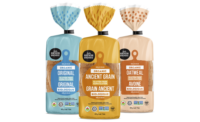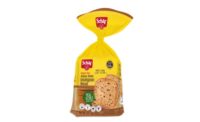Retail bakeries are the face of freshly baked for the nation. Each major U.S. city typically has a good handful of prevailing currents that run through its retail bakeries, from Old World, fire-stoked hearth-oven bakeries resplendent with rustic charm to highly refined, detailed, artistic pâtisseries—and the droves of American artisan bakeries that often bridge the gap between the two. And, of course, neighborhood doughnut shops carry on unfazed from coast to coast, continually offering their timeless charms.
From Oct. 8–11, 2016, folks from across the retail bakery world will descend upon Las Vegas to attend the International Baking Industry Exposition (IBIE), where the Retail Bakers of America (RBA)—one of IBIE’s three supporting associations—will offer educational opportunities centered on business issues specific to retail bakeries, as well as hands-on sessions to refine skills.
Leading up to IBIE 2016, Snack Food & Wholesale Bakery will profile top retail bakeries in major U.S. cities. Little T American Baker, Portland, OR, run by Tim Healea, is one such bakery. Its Division Street location—a large space with in-store dining and the production bakery aspects of the business—offers a sandwich-centric breakfast and lunch menu, along with a selection of breads, pastries and desserts like baguettes, pretzel rolls, slabs, pan de agua, flauta de agua, Sally Lunn, croissants, kougin amann, Danishes, scones, tartlets, dacquoise, cookies and more. Its smaller Union Way location has a pared-down menu.
On a recent visit to the Northwest, I sat down with Healea to gain some insight into the city’s bakery scene and his retail bakery business. He previously served as head baker at Pearl Bakery, also in Portland, and competed in the 2002 Coupe Du Monde de la Boulangerie with the Bread Bakers Guild Team USA, taking the silver medal. In 2008, he founded Little T American Baker, which today sports two locations in Portland. A former journalist, he gained inspiration to enter baking after reading Nancy Silverton’s classic “Breads from the La Brea Bakery.”
Douglas J. Peckenpaugh: How has the Portland bakery scene changed over the years?
Tim Healea: The Portland bakery industry has really evolved over the years from the beginnings of its artisan bread movement. We have just exploded the number of artisan bakeries in Portland, along with just the artisan food movement has a whole. There is just so much going on in terms of cheesemakers and brewers and chocolate makers. People in Portland really support artisan food businesses.
DJP: Describe your innovation process.
TH: Our R&D is a collaborative process. Most of our bakers have been here, on average, three years or more. I work with them, seeing that they have an opportunity to have a creative outlet. Part of it is based on the grains that we can get, like flint corn, Kamut and heritage wheat. We have also collaborated with other food businesses in Portland. One of our most successful has been with The Commons Brewery. We use the same toasted malt and yeast that they use in brewing their farmhouse ale to make a bread we call The Farmhouse.
DJP: I noticed that you are selling T-shirts that state, “Powered by Gluten.” Do you offer any gluten-free products?
TH: No, we don’t do any gluten-free product. It’s just not my expertise. For yeast breads, fermentation is the most-important thing, so using quality flour and grain and then a long fermentation is really important—and in order to do that, we have to have gluten. It’s the structure of the bread. It’s the building block of good bread. I think there’s been a lot of piggy-backing on the trend for gluten-free, but for us, gluten is essential to what we do. We have some gluten pride.
DJP: Talk a little more about your starters.
TH: We have some different starters that we use for different grains. We use a liquid levain. A starter is only as good as the care it’s given, so the characteristics of the starter will change based on the feeding schedule, and also what you feed it. When you change the flour, you change the starter. Most of the flora that provides the bacteria and yeast for leavening the bread comes in the flour, so very little is impacted in the environment—it’s really the flour. It’s really how you take care of the starter—that’s what impacts the flavor and characteristics of the bread.
DJP: What are your best-selling products?
TH: The basics are what really sell. A baguette and a croissant are the two biggest sellers. We also sell a lot of pretzel bread, and then we have a product we call a slab. We soften the crust with a little bit of extra-virgin olive oil and then it’s sprinkled with some sea salt.








